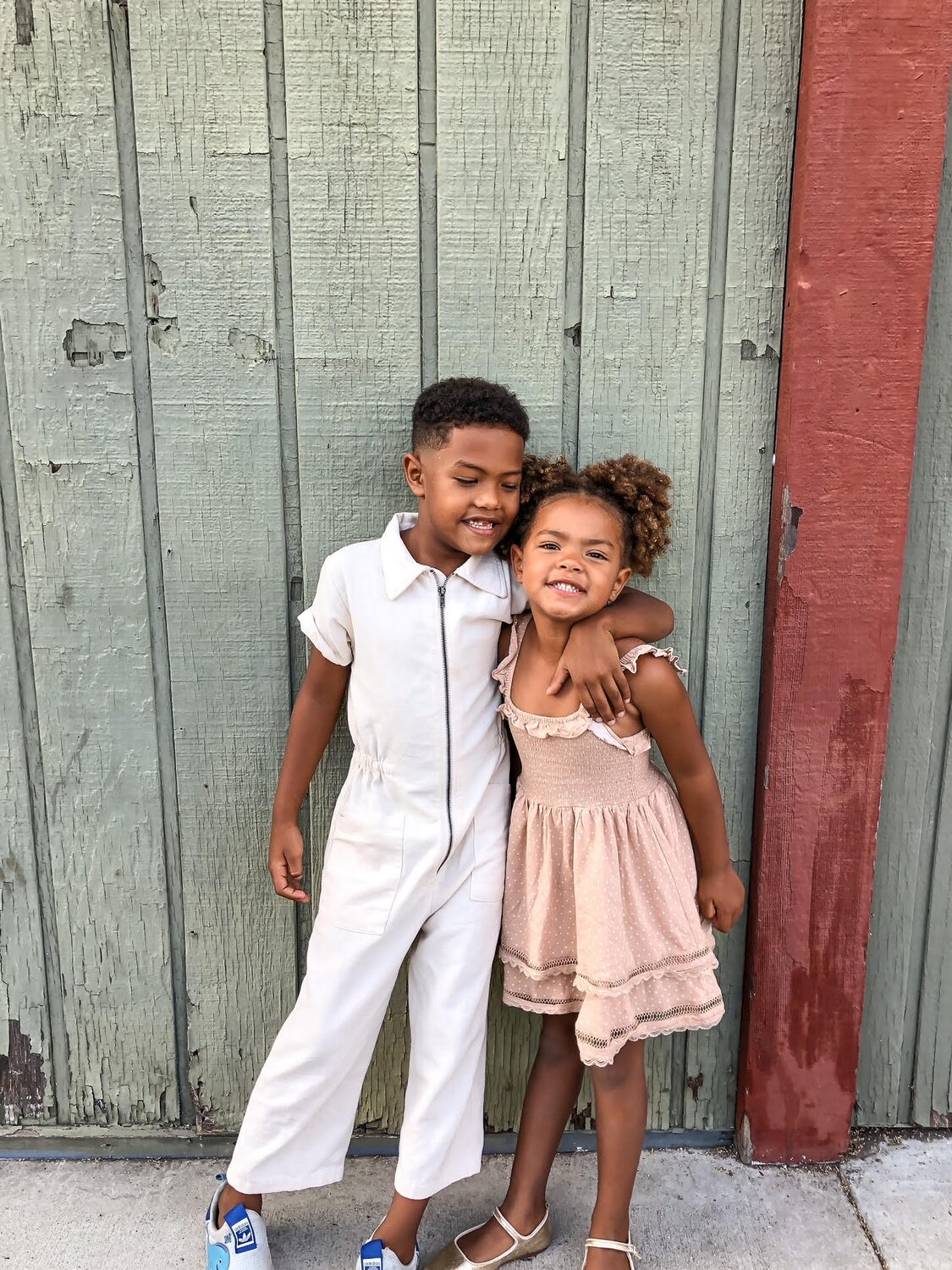
Learn How to Easily Boost Your Kids’ Confidence with These Expert Tips
Give your kiddos the confidence they need to tackle all of life’s challenges by implementing these expert practices.

Raising confident kids might feel like a big task, but it starts with small, everyday moments. Confidence isn’t something kids are born with—it’s something they build through encouragement, challenges, and connection. And as a parent, you play the starring role in helping them grow into self-assured, capable adults.
The good news? You don’t need to be perfect or have all the answers to nurture your child’s confidence. With a few practical strategies and some intentional effort, you can create an environment where your child feels empowered to explore, take risks, and celebrate their unique strengths. These tips will guide you through simple ways to make self-confidence a natural part of your family’s day-to-day life. Ready to help boost your kids’ confidence?
Your kid did something amazing? Give them something to show for it! Whether it’s a gold star sticker on their chore chart or finally getting promoted to yellow belt in karate, celebrating your child’s achievements will make them feel even more proud. A great way to help them remember all of the amazing things they’ve accomplished is by capturing them and putting them in photo books.
According to a research study conducted by Chatbooks x HP, seeing themselves in printed photos boosts kids' confidence and provides them with a stronger sense of self. Imagine the lasting impact a photo book filled with their achievements could have on their self-esteem and pride!
Photo books can even be educational for kids. Learn more about How to Teach Your Kids With Photo Books.
Which outfit do you want to wear? Do you want to go to the mall this weekend or go to Grandma’s? These are just a few examples of some age-appropriate choices you can let your child make. Letting them call the shots (when appropriate of course) builds trust in their own judgment and fosters independence. Even small decisions can teach them problem-solving and critical thinking skills.
Changing your words from “I can’t do this” to “This is tricky, but I’ll figure it out,” can have a big impact on your littles when they’re in the room with you. Kids mirror what they see and hear, so showing resilience and a positive attitude helps kids adopt the same mindset. Replace negative comments like, “I’m so bad at this,” with affirmations like, “I’m working on getting better at this.” When kids see you handle challenges with grace, they’ll learn to do the same. Plus, it’s not a bad practice for you to adopt as well.

When kids see their hard work and effort recognized, it reinforces the idea that challenges can be overcome with persistence, determination, and grit. When your child struggles with homework, instead of jumping in to solve the problem, guide them through it with encouragement: “I see you’re working really hard to figure this out. Keep going—you’re getting closer!” This not only boosts their confidence but also helps them develop a growth mindset.
Pro tip: Create a “Persistence Jar” where everyone adds a note about something they worked hard on during the week. Read them together during family time to celebrate effort as a team. This reinforces the idea that persistence is valuable and worthy of recognition.
Setting realistic goals together is a powerful way to build your child’s confidence while teaching them essential life skills like planning, perseverance, and self-discipline. The key is to make goal-setting a collaborative and positive experience, ensuring your child feels empowered and supported.
For instance, if your child wants to improve at soccer, work together to set a goal like practicing their dribbling skills for 15 minutes a day. Breaking the goal into smaller, manageable steps makes it less intimidating and helps them track their progress. When they hit milestones, celebrate those achievements to reinforce their sense of accomplishment and capability. Track their progress with a photo book to give them an extra boost of confidence.
When kids face challenges head-on and take risks, they build resilience and confidence. Allowing them to try new things, even with the possibility of failure, shows them that success often comes from stepping outside their comfort zone. For instance, if your child wants to audition for a school play or try out for a sports team, encourage them to go for it—even if they feel nervous. Remind them that bravery isn’t the absence of fear, but the willingness to try despite it.
When setbacks happen, resist the urge to fix things for them immediately. Instead, support them in finding solutions or simply being there to listen. By handling challenges and risks, kids learn that failure isn’t the end—it’s just a step in the learning process.
Instead of focusing on “getting it right,” encourage curiosity and learning. If your child doesn’t score well on a test, ask, “What do you think you could do differently next time?” instead of dwelling on the score. Phrases like, “Mistakes mean you’re trying something new,” or “Look how much you’ve learned already!” help reframe setbacks as progress. Share examples from your own life to show that growth takes time.

Every child has unique talents and qualities that make them special. Focusing on your child’s strengths helps build their self-esteem and allows them to see their value. Instead of dwelling on areas where they might struggle, highlight what they’re naturally good at or enjoy doing. If your child excels at making others laugh, celebrate their sense of humor and point out how it brightens people’s days.
This doesn’t mean ignoring weaknesses altogether—it’s about shifting the emphasis. For example, if your child struggles with reading but loves drawing, you can use their artistic talent to create comic strips that incorporate reading practice. By integrating strengths into areas of improvement, kids feel more capable and less discouraged.
Confidence thrives when kids can see how far they’ve come. Instead of chasing perfection, celebrate the small wins and improvements along the way. Focusing on progress shows them that their effort matters more than the end result, teaching them to appreciate their growth and be proud of their achievements. A photo book is a great way to give them a visual of their progress. Whether it’s their school art projects they want to get better at, or being the lead in their dance recital—compiling photos of all their practice and wins along the way is a great way to make all their efforts tangible.
Here are some Creative Photo Book Prompts to Fill Your Kid’s Photo Book.
When kids help others, they see their own worth in a whole new light. Encourage them to give back, whether it's helping a neighbor or donating clothes to a charity. If your child helps a friend who’s feeling down, praise their kindness and understanding. These actions teach kids that they’re valuable and have the power to make a difference, boosting their self-esteem.
Kids are going to make mistakes—that's how they learn. But instead of stepping in to fix everything, let them work through it themselves.
If your child spills a glass of juice, instead of cleaning it up immediately, guide them to get a towel and figure out what they could do differently next time. This teaches them to problem-solve and builds their confidence in handling challenges on their own.

Kids feel more confident when they know they are loved for who they are, not just for their achievements. Remind them that no matter what happens, you’ll always be there for them.
If your child doesn’t make the soccer team, for example, tell them that you’re proud of their effort and that you love them no matter what. Knowing they have unconditional support makes them feel secure and ready to take on the world.
Help your kids develop a positive relationship with their bodies by focusing on what their bodies can do, not just how they look. Compliment their strength, energy, and talents. For example, instead of commenting on appearance, say, "I love how strong you are when you carry that heavy bag" or "You have such great energy when you run!"
These positive messages help kids feel confident in their abilities and less concerned with comparing themselves to others.
Emotional ups and downs are part of life, but when kids know how to manage their feelings, they feel more in control. Teach them calming techniques like deep breathing or counting to ten when they’re upset.
For example, if your child gets frustrated while doing homework, take a break together and practice breathing exercises. This gives them tools to handle tough emotions and boosts their confidence in their ability to navigate difficult situations.
Let your kids try different activities to discover what they love and where they shine. Whether it's painting, soccer, or coding, having a hobby helps them build confidence and identity. If your child loves to bake, encourage them to help you make cookies and then share them with family.
Not only does this boost their confidence in their skills, but it also gives them a sense of accomplishment that’s theirs to be proud of.

While there are many ways to nurture confidence, certain actions can inadvertently hinder it. Research indicates that behaviors such as overpraising, shielding children from challenges, or comparing them to others can negatively impact self-esteem. For instance, excessive praise can create pressure to perform. Here are a few more thing to avoid:
This can make kids feel their value is tied to achievements.
Overprotecting your child may rob them of opportunities to build resilience.
Avoid statements like, “Why can’t you be more like your cousin?” Focus on their unique strengths instead.
Pushing kids too hard can lead to anxiety and self-doubt.
A fantastic way to remind kids of their achievements and boost self-esteem is by creating photo books filled with their milestones. With Chatbooks, you can easily compile their proudest moments into something they’ll treasure for years. Documenting their growth helps them see how much they’ve accomplished and encourages them to keep striving. Start building your child’s confidence—and a lifetime of memories—one page at a time.

70 Romantic Wedding Vows

65 Sympathy Messages To Use In a Condolence Card

51 Best Goodbye Quotes